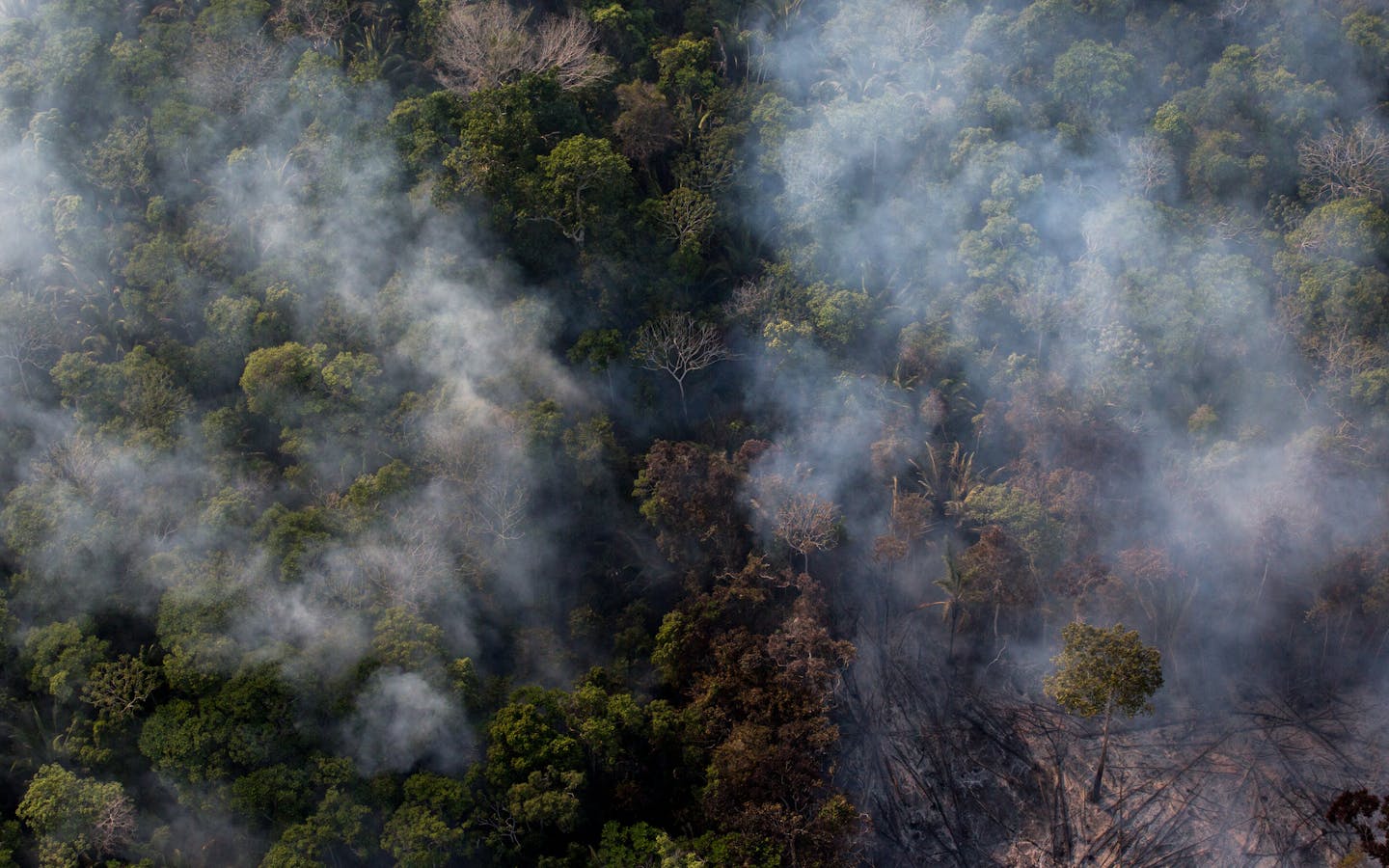NOTE: The Firecast initiative has ended. As of December 2023, this webpage is no longer being updated regularly.
Conservation International recommends the following platforms to help track fires in real-time: Global Forest Watch, NASA Firms and the Regional East Africa Fire Management Resource Center.
For guidance on these and other alternative platforms, please see our training video and draft manual.
As fires threaten some of Earth’s most biodiverse and valuable high-carbon ecosystems, near real-time tracking information on active fires is more critical than ever.
Firecast, a fire monitoring and alert system for the tropics, used Earth observation satellite data to track ecosystem disturbances such as fires — delivering this time-sensitive information to decision-makers in near-real time, and in their preferred language.
For urgent threats, such as active fires, the tool served as a customized alarm for park rangers, forest managers, communities and governments, enabling swift action. Over time, Firecast’s dashboard enabled users to analyze trends and patterns in an area of interest to see where conservation efforts were needed most and measured the success of those efforts.
When the program began in 2002, Firecast was an innovative solution. Since then, other global and regional solutions have emerged to address fire science needs — and in 2023 Conservation International made the decision to discontinue Firecast. We are pivoting our focus and resources to other aspects of fire science and look forward to continued engagement with partners and stakeholders.
Firecast Success Stories

Indonesia
In 2007, a fire deep within a large national park in Indonesia was detected by NASA satellites. Within hours, an email alert from Firecast informed the park manager of the fire, who then dispatched rangers to investigate it. The rangers discovered that illegal loggers had cleared the forest for a temporary settlement to gain quick access to selectively log the timber in the park. The rangers arrested 84 people and removed them from the park that same day.

Bolivia
Fundación Amigos de la Naturaleza (FAN), a Conservation International partner in Bolivia, worked directly with rural and Indigenous farming communities, advising them of the ecosystem, health, and economic risks of burning agricultural fields during peak fire conditions. Conservation International partnered with FAN to develop national fire risk maps that FAN shared with the communities they supported to help reduce fire disasters.

Madagascar
The data reported by Firecast were vital for protecting restored forest areas, which are particularly vulnerable to fires. WWF Madagascar used Firecast's active fire web map as part of a community outreach campaign to highlight the importance of protecting the Amoron'i Onilahy Protected Area in southwest Madagascar. Fires from nearby villages were threatening 44 hectares (109 acres) of newly reforested area in the reserve. Three years after the restoration, the site was still 85% intact — a high success rate for a restoration project.




